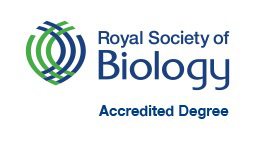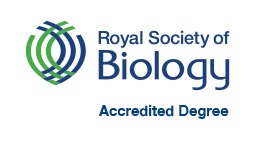Marine and Freshwater Biology Code C164 Attend an Open Day Attend an Open Day Clearing places available – 0800 121 40 80
Apply NowYou are viewing this course for September start 2024
Key Facts
C164-
UCAS Tariff
120 - 104
-
Course duration
3 years
Further details on entry requirements
Apply NowThe BSc Marine and Freshwater Biology degree at Aberystwyth University is one of only a few nationally to provide you with an integrated catchment to ocean understanding of the biology, ecology and stressors affecting these intimately interconnected ecosystems. This is crucial, given that they support some of the most threatened species and habitats on the planet.
Situated on the coast of Cardigan Bay, Aberystwyth is one of the best places in the UK to study marine and freshwater biology. You will have easy access to rocky and sandy shores, estuaries of conservation importance, as well as near-pristine rivers and lakes. Cardigan Bay is also home to the largest residential population of bottlenose dolphins in the UK.
Course Overview
Modules September start - 2024
Please note: The modules listed below are those currently intended for delivery during the next academic year and may be subject to change. They are included here to give an indication of how the course is structured.
| Module Name | Module Code | Credit Value |
|---|---|---|
| Cell Biology * | BR17520 | 20 |
| Comparative Animal Physiology | BR16720 | 20 |
| Ecology and Conservation * | BR19320 | 20 |
| Genetics, Evolution and Diversity | BR17120 | 20 |
| Microbial and Plant Diversity * | BR19920 | 20 |
| Skills for Wildlife Scientists * | BR15720 | 20 |
| Module Name | Module Code | Credit Value |
|---|---|---|
| Aquatic Botany | BR25820 | 20 |
| Freshwater Biology | BR22020 | 20 |
| Marine Biology | BR22620 | 20 |
| Research Methods * | BR27520 | 20 |
Options
| Module Name | Module Code | Credit Value |
|---|---|---|
| An Introduction to Landscape Ecology and Geographic Information Systems | BR25520 | 20 |
| Animal Behaviour | BR21620 | 20 |
| Environmental Microbiology and Monitoring * | BR26020 | 20 |
| Invertebrate Zoology | BR25420 | 20 |
| Researching Behavioural Ecology | BR27320 | 20 |
| Vertebrate Zoology | BR26820 | 20 |
| Module Name | Module Code | Credit Value |
|---|---|---|
| Fish Biology, Fisheries and Aquaculture | BR33220 | 20 |
| Research Project * | BR36440 | 40 |
Options
| Module Name | Module Code | Credit Value |
|---|---|---|
| Behavioural Neurobiology | BR35320 | 20 |
| Freshwater Biology Field Course | BR37720 | 20 |
| Global Biodiversity Conservation | BR33420 | 20 |
| Marine Biology Field Course | BR30020 | 20 |
| Population and Community Ecology | BR33920 | 20 |
| Wildlife Conservation | BR34520 | 20 |
* Also available partially or entirely through the medium of Welsh
Careers
Teaching & Learning
Student Testimonials
Typical Entry Requirements
UCAS Tariff 120 - 104
A Levels BBB-BCC with B in Biology
GCSE requirements (minimum grade C/4):
English or Welsh, Science and Mathematics
BTEC National Diploma:
DDD-DDM in a specified subject
International Baccalaureate:
30-28 with 5 points in Biology at Higher Level
European Baccalaureate:
75%-65% overall with 7 in Biology
English Language Requirements:
See our Undergraduate English Language Requirements for this course. Pre-sessional English Programmes are also available for students who do not meet our English Language Requirements.
Country Specific Entry Requirements:
International students whose qualification is not listed on this page, can check our Country Specific Entry Requirements for further information.
The University welcomes undergraduate applications from students studying the Access to Higher Education Diploma or T-level qualifications, provided that relevant subject content and learning outcomes are met. We are not able to accept Access to Higher Education Diplomas or T-levels as a general qualification for every undergraduate degree course.
Our inclusive admissions policy values breadth as well as depth of study. Applicants are selected on their own individual merits and offers can vary. If you would like to check the eligibility of your qualifications before submitting an application, please contact the Undergraduate Admissions Office for advice and guidance.


